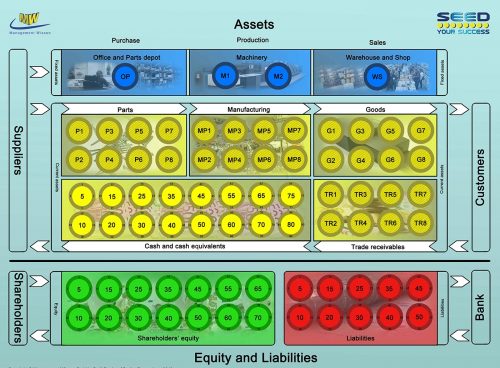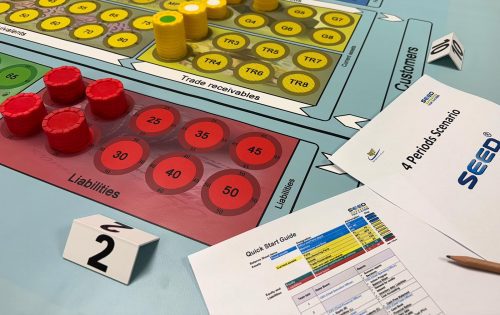The Business Game SEED
is a board-based business game designed to teach the fundamentals of business administration in connection with the business accounting.
SEED = Simulation of Economics for Entrepreneurs and Deciders
It simulates operational processes in connection with managerial accounting.
In this simulation, participants playfully learn about business processes from purchasing to production to sales—
all in relation to accounting and financial reporting.
The game is conducted haptically on a physical game board, allowing teams to “grasp” and understand business contexts (action learning).
SEED is particularly effective as a didactic pre-stage to more complex, computer-based business simulations.
The product is available from Management Wissen GmbH.




